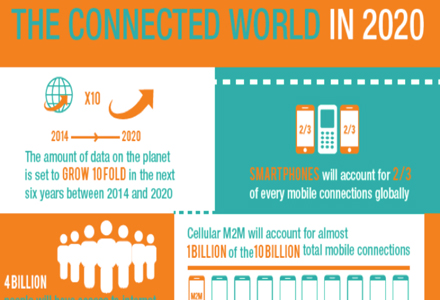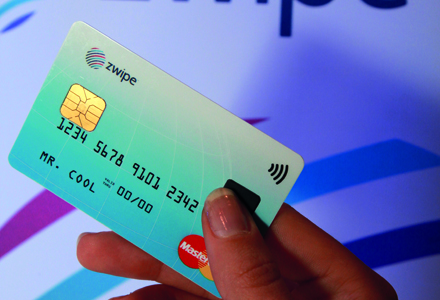The economic value of our digital identities is growing fast and could reach 1 trillion euros in Europe by 2020, according to estimates from the Boston Consulting Group.
Digital identities boost economic efficiency, help focus research and marketing efforts while spurring the creation of personalized products and services that, in turn, drive revenues. For consumers, the benefits are compelling as products and services are tailored to their needs and requirements, says the report.

The economic value of our digital identities is growing fast and could reach 1 trillion euros in Europe by 2020, according to estimates from the Boston Consulting Group.
Digital identities boost economic efficiency, help focus research and marketing efforts while spurring the creation of personalized products and services that, in turn, drive revenues. For consumers, the benefits are compelling as products and services are tailored to their needs and requirements, says the report.
The possible uses of digital identity are broad and far-reaching. They include public services and health, mobile and financial services, retail, e-commerce, Web communities as well as identity and travel documents such as passports, drivers’ licenses or ID cards.
The main challenge facing the digital identity economy as it grows, however, is providing individuals, businesses and government organizations with secure, trusted data, according to an IFOP study into the protection of personal data.
It found that two-thirds of the value of digital identities could be lost if stakeholders fail to establish a trusted flow of personal data. However, with proper privacy controls and sufficient benefits, most consumers are open to sharing their personal data.
To ensure that the digital flow of personal information continues, organisations need to make the benefits clear to consumers. They also need to embrace responsibility, transparency, and user control, taking heed of important privacy considerations relating to the collection, use and storage of data, anonymity, pseudonymity - and the extent to which individuals have control over how their personal data is used.
Solid identity management practices are especially critical for governments, many of which are busy putting in place eGovernment, eHealth and eCommerce services.
Faced with such challenges, companies all over the world are rushing to provide digital identity-related technologies and services, from trusted devices suppliers to third-party service providers.
Smart card technology, in particular, is globally recognised as the most appropriate for identity applications which must meet certain critical security requirements, including: authenticating the bearer of an identity credential when used in conjunction with PINs or biometric technologies, protecting privacy, increasing the security of an identity credential and implementing identity management controls.
Digital identities boost economic efficiency, help focus research and marketing efforts while spurring the creation of personalized products and services that, in turn, drive revenues. For consumers, the benefits are compelling as products and services are tailored to their needs and requirements, says the report.
The possible uses of digital identity are broad and far-reaching. They include public services and health, mobile and financial services, retail, e-commerce, Web communities as well as identity and travel documents such as passports, drivers’ licenses or ID cards.
The main challenge facing the digital identity economy as it grows, however, is providing individuals, businesses and government organizations with secure, trusted data, according to an IFOP study into the protection of personal data.
It found that two-thirds of the value of digital identities could be lost if stakeholders fail to establish a trusted flow of personal data. However, with proper privacy controls and sufficient benefits, most consumers are open to sharing their personal data.
To ensure that the digital flow of personal information continues, organisations need to make the benefits clear to consumers. They also need to embrace responsibility, transparency, and user control, taking heed of important privacy considerations relating to the collection, use and storage of data, anonymity, pseudonymity - and the extent to which individuals have control over how their personal data is used.
Solid identity management practices are especially critical for governments, many of which are busy putting in place eGovernment, eHealth and eCommerce services.
Faced with such challenges, companies all over the world are rushing to provide digital identity-related technologies and services, from trusted devices suppliers to third-party service providers.
Smart card technology, in particular, is globally recognised as the most appropriate for identity applications which must meet certain critical security requirements, including: authenticating the bearer of an identity credential when used in conjunction with PINs or biometric technologies, protecting privacy, increasing the security of an identity credential and implementing identity management controls.










